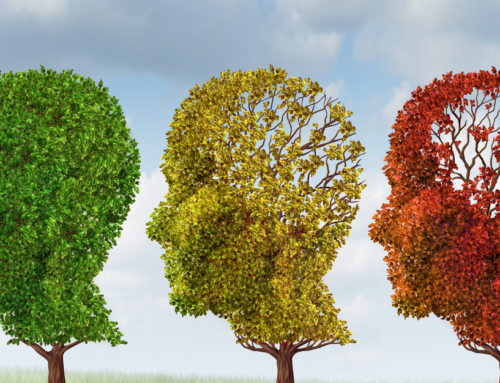Many people looking to optimize their health will focus on vitamins, but minerals are equally as vital! Each cell in our body requires minerals, and without the correct levels they tend not to function optimally. We need minerals for maintaining a healthy gut, brain, and bones, as well as a strong immune system. Let’s dive into the importance of minerals and preventing mineral imbalances.
 What Are Minerals?
What Are Minerals?
Minerals are not something our bodies make naturally– we obtain them through the food and water we consume.
There are two different categories of minerals: macrominerals and trace minerals.
Macro-minerals:
These include magnesium, sodium, potassium, calcium, chloride, and sulfur. Our bodies require larger amounts of these minerals, and if you eat a balanced diet this can be accomplished fairly easily.
Trace minerals:
These are required in smaller amounts, but are also essential to cellular function. These include manganese, copper, iodine, zinc, and selenium. Trace minerals can also be obtained by eating a well-balanced diet.
Common Mineral Deficiencies and Imbalances
What happens to our bodies when we don’t get the essential trace & macro-minerals that we need? Some signs of mineral deficiency include:
- Weak bones
- Fatigue
- Weakened immune function
Here are five of the most common mineral deficiencies and their effects on our health.
Calcium deficiency
Calcium is a mineral commonly associated with strong bones and teeth. It also plays a role in the function of your blood vessels, muscles, nerves, and hormones. There are usually no noticeable symptoms of deficiency, as your body is able to regulate the amount of calcium in the blood. However, if left untreated, calcium deficiency can lead to more severe health problems such as osteoporosis. People with severe calcium deficiency may also experience muscle cramping, numbness and fatigue.
It is a good idea to eat a diet that includes calcium-rich foods such as nuts, seeds, and canned salmon with bones. Vegetables such as broccoli and kale also provide calcium. It can take a concerted effort to consume enough calcium – fewer than 10% of women over 50 get enough!
Iron deficiency
Iron is an important component of hemoglobin, which is a crucial protein that carries oxygen to your tissues. The symptoms of iron deficiency include feeling weak and tired often. When left untreated, iron deficiency can lead to anemia – a condition where the body does not have enough healthy red blood cells.
Eating a diet rich in meat, poultry, or fish is typically enough to prevent iron deficiency anemia. For vegetarians and vegans, supplementation is often recommended, but certain plant-based foods such as beans or lentils can be sources of iron.
Magnesium deficiency
Magnesium is a crucial mineral for many (over 300!) bodily functions. Blood pressure, proper nerve function, energy metabolism, relaxation and protein production are all impacted by magnesium levels. A diet low in magnesium, certain medications and chronic health conditions like alcoholism may lead to a magnesium deficiency. Early signs of this include fatigue, weakness, restlessness and nausea, and can lead to symptoms of numbness and muscle cramps.
I recommended eating magnesium-rich foods such as legumes, nuts, and leafy greens like spinach. Supplementation is also recommended, however, speak with your provider for proper guidance.
Potassium deficiency
The mineral potassium is an electrolyte needed by enzymes that help your body turn carbohydrates into energy. It also plays a role in heart function and nerve signals. Symptoms of a deficiency include weakness, fatigue, muscle cramps and arrhythmia. It can present as constipation, bloating, or abdominal pain.
Good sources of potassium are fruits and vegetables, such as bananas, avocado, and dark leafy greens. Other good sources are orange juice and nuts.
Zinc deficiency
Zinc is necessary for protein synthesis, immune system function, and wound healing. Not getting enough can cause loss of appetite, taste, or smell. Lack of zinc also tends to decrease the immune system’s function.
The best sources of zinc are found in animal foods such as oysters, red meat, and poultry. Other sources include beans, lentils, whole grains, and dairy products.
What Causes Mineral Imbalances?
Ideally, we should be getting all of our required minerals through the diet we consume. However, there are complex reasons why many people are at risk for mineral deficiency:
- Poor soil quality. The mineral content of our food is directly dependent on the soil that it is grown in. Unfortunately, our soil today is lacking due to modern processes of irrigation, fertilization, and harvesting methods that disrupt the interactions between plants and soil fungi and reduce their absorption of nutrients. Thus, even somebody eating a healthy diet of whole foods and plants may have difficulties obtaining adequate nutrients.
- Poor diets. In contrast, a person eating a diet high in refined carbohydrates, sugar, and alcohol will have an even harder time obtaining nutrients. The popularity of ultra-processed foods is a major source of nutrient deficiencies in North America. Eating too few calories can create deficiencies as well.
- Certain medications can deplete the body of essential minerals. This includes diuretics, which can cause loss of sodium, potassium, and magnesium. Antacids, painkillers, as well as hormonal contraceptive pills can all lead to imbalances as well.
- Stress. Whether physical or emotional, when our body is in a state of stress we lose out on zinc and magnesium. If that’s not enough to motivate you to get back into your yoga practice, stress also influences how well minerals are absorbed by our bodies when we eat!
- Fluid loss. Losing a lot of fluids, through vomiting or sweating excessively, can impact levels of potassium, magnesium, and calcium.
Ensuring Optimal Mineral Intake
If you are experiencing any of the above symptoms of mineral deficiency, talk to a holistic healthcare practitioner who can run a lab test to check for deficiencies. They may recommend ways to boost your macro mineral and trace mineral consumption.
Here is what I typically recommend:
- A healthy diet. Eating a diet centered around whole foods (ideally, locally raised and organic) is the best way to prevent nutrient deficiency. Dark leafy greens, vegetables, fruit, nuts, legumes, and lean proteins are especially nutrient-dense, so choose these over processed foods as often as you can.
- Supplementation. At times, nutrient deficiencies cannot be addressed through diet alone. This is where supplements can help – your healthcare provider will determine the frequency and dosage that is best for your needs. It is important to follow these instructions because excessive intake of certain supplements can actually be harmful to your health.
- Lower stress, sleep well, exercise! We know that stress negatively impacts the way our bodies absorb nutrients and minerals, and our bodies require adequate sleep in order to function at their best. It is important to establish healthy stress-mitigating routines into your life to ensure proper nutrient absorption. This will look different for everybody, but some suggestions are a quick walk in nature, a daily yoga practice, or even simply reading before bedtime.
Our bodies need certain amounts of both trace and macro-minerals to function properly. A poor diet, poor soil quality, and stress are all factors that can lead to deficiencies. This causes our bodies to become depleted and not work at their best performance. As we saw, some of the symptoms of common nutrient deficiencies can be life-disrupting.
However, with a robust diet consisting of whole, organic foods, supplementation where needed, and healthy stress management tools, nutrient deficiency can be prevented. Reach out to review any symptoms you’re experiencing and we’ll help you get back to optimum health!
References
- Colino, S., & Foglia, L. (2022, May 3). Fruits and vegetables are less nutritious than they used to be. National Geographic. https://www.nationalgeographic.co.uk/environment-and-conservation/2022/05/fruits-and-vegetables-are-less-nutritious-than-they-used-to-be
- Hornyak M, Voderholzer U, Hohagen F, Berger M, Riemann D. Magnesium therapy for periodic leg movements-related insomnia and restless legs syndrome: an open pilot study. Sleep. 1998 Aug 1;21(5):501-5. doi: 10.1093/sleep/21.5.501. PMID: 9703590.
- Lindsay, W. L. (1984). Soil and plant relationships associated with iron deficiency with emphasis on nutrient interactions. Journal of Plant Nutrition. https://www.tandfonline.com/doi/abs/10.1080/01904168409363215?casa_token=ce4-AoTCWLIAAAAA:VBoqN46DEb6B16C0Nvnzj5M1OHdfpOQsMGUvb7W5NN70Euz7tuLYEGPCI59nwJ7v7kDHjEf38_87
- Schubert, C., Guttek, K., Reinhold, A., Grungeiff, K., & Reinhold, D. (2015, November 16). The influence of the trace element zinc on the immune system. Degruyter. https://www.degruyter.com/document/doi/10.1515/labmed-2015-0060/html
- Weyh C, Krüger K, Peeling P, Castell L. The Role of Minerals in the Optimal Functioning of the Immune System. Nutrients. 2022 Feb 2;14(3):644. doi: 10.3390/nu14030644. PMID: 35277003; PMCID: PMC8840645 https://www.ncbi.nlm.nih.gov/pmc/articles/PMC8840645/
- Bailey RL, Dodd KW, Goldman JA, Gahche JJ, Dwyer JT, Moshfegh AJ, Sempos CT, Picciano MF. Estimation of total usual calcium and vitamin D intakes in the United States. J Nutr. 2010 Apr;140(4):817-22. doi: 10.3945/jn.109.118539. Epub 2010 Feb 24. PMID: 20181782; PMCID: PMC2838624.
- Clark SF. Iron deficiency anemia. Nutr Clin Pract. 2008 Apr-May;23(2):128-41. doi: 10.1177/0884533608314536. PMID: 18390780.





